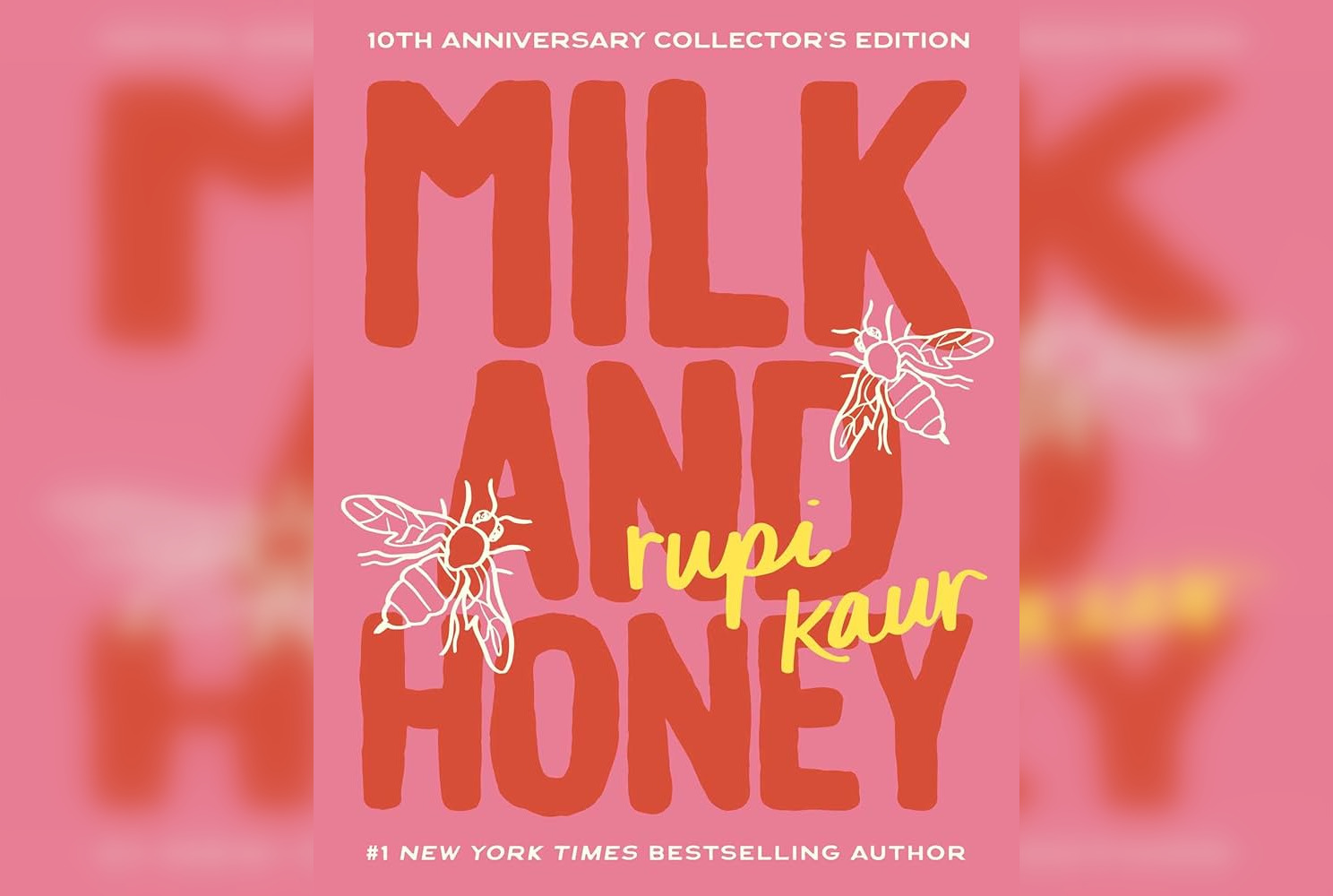
News
News Flash: Memory Shop and Anime Zakka to Open in Harvard Square

News
Harvard Researchers Develop AI-Driven Framework To Study Social Interactions, A Step Forward for Autism Research

News
Harvard Innovation Labs Announces 25 President’s Innovation Challenge Finalists

News
Graduate Student Council To Vote on Meeting Attendance Policy

News
Pop Hits and Politics: At Yardfest, Students Dance to Bedingfield and a Student Band Condemns Trump
10 Years After ‘Milk and Honey’: A New Era of Accessible Poetry

To say Rupi Kaur’s debut collection, “Milk and Honey,” is mediocre would be an understatement. Even the 10 years since its original publication date cannot strengthen Kaur’s limp metaphors or clarify her muddy messaging. The line breaks remain jarring and the content is still frustratingly literal. Stanzas like “i was music / but you had your ears cut off” continue to bewilder poetry enthusiasts everywhere.
And yet, denying Kaur’s impact on the poetry world would be absurd. Kaur has sold over 11 million copies globally in 43 different languages. She is credited with the popularization of “Instapoetry,” a genre of poetry characterized by its off-page social media presence. Now, partially thanks to Kaur, one can consume an anthology’s worth of poems just by scrolling through Instagram.
My first exposure to Rupi Kaur was in seventh grade, hunched over my friend’s phone in the cafeteria as we scrolled through her poetry Pinterest board. I was amazed. I knew that poetry did not have to rhyme, but “Milk and Honey” took free verse to a new level. Words danced around beautiful line illustrations, and sentences lived as entire pages. Even the substance was different. Kaur wrote about love, her body, and intergenerational trauma — a sharp departure from the mostly white male poets we read in school. It felt like Kaur was free to say anything she wanted; she wasn’t restricted to what I believed was typical of published work. It also helped that I understood Kaur — she never made me search through complicated literary devices to get to her thesis. I just got it.
Many people felt the same way I did in middle school. With the advent of “Instapoetry” came the Instagram and Tumblr poets: regular people who shared their original poetry online. Scrolling through the 228,000 posts on Instagram tagged with #originalpoetry, Kaur’s influence is evident. Lowercase letters frame writing that reads more like personal motivation than fiction, like a poem from idabankspoetry that reads: “hold space / for all that you are / not who you / thought / you should be.” The poem was published in November of 2023, but it would not feel out of place between the line drawings of “Milk and Honey.”
It’s fitting that “normal people” are publicizing their own work that Kaur has inspired. She originally self-edited, self-designed, and self-published “Milk and Honey” before Andrews McNeal Publishing acquired it a year later. Kaur’s success taught many that an MFA or a publishing deal were not required to create and share their art — although Kaur herself does have a bachelor’s degree in Rhetoric and Professional Writing. Her story is not just inspirational, but aspirational. Because it seemed like anyone could do it, so many people decided to try.
I started writing poetry for the first time after I read an excerpt from “Milk and Honey.” My pen was my fingertips, and my paper was the notes app on my phone. Now, I can confidently say my poems were awful. But as I wrote them, I could only think of how similar they looked to Kaur’s published work, which motivated me to keep writing. I even published a couple of my poems on my top-secret poetry Tumblr account. I never got much better at poetry, but the process helped me discover my love for writing in general. For that, I will always be grateful to “Milk and Honey.”
Kaur herself is a vocal supporter of young people in the arts. In one of the last poems in “Milk and Honey,” “to all you young poets,” is the line: “your art / is about / if your heart likes your work.” Of course, publishing that art opens an artist up to criticism, but Kaur reminds aspiring poets that their primary audience should always be themselves. Polarizing critical reception of Kaur’s debut did not stop her from releasing two more collections, and a lack of formal training or experience should not stop anyone from writing a poem. Regardless of the reactions that Kaur’s work might inspire, it is admirable that she uses her platform to encourage young artists everywhere.
To interpolate a couplet from Wendy Cope, another fascinating female poet: Rupi Kaur, I don’t love your work. I’m glad it exists. Maybe the merit of a poet is not just the quality of their poems, but also the quantity of lives they have touched. If so, Rupi Kaur is certainly one of the greats.
Want to keep up with breaking news? Subscribe to our email newsletter.
From Our Advertisers

Over 300+ courses at prestigious colleges and universities in the US and UK are at your disposal.

Where you should have gotten your protein since 1998.

Serve as a proctor for Harvard Summer School (HSS) students, either in the Secondary School Program (SSP), General Program (GP), or Pre-College Program.

With an increasingly competitive Law School admissions process, it's important to understand what makes an applicant stand out.

Welcome to your one-stop gifting destination for men and women—it's like your neighborhood holiday shop, but way cooler.

HUSL seeks to create and empower a community of students who are seeking pathways into the Sports Business Industry.
